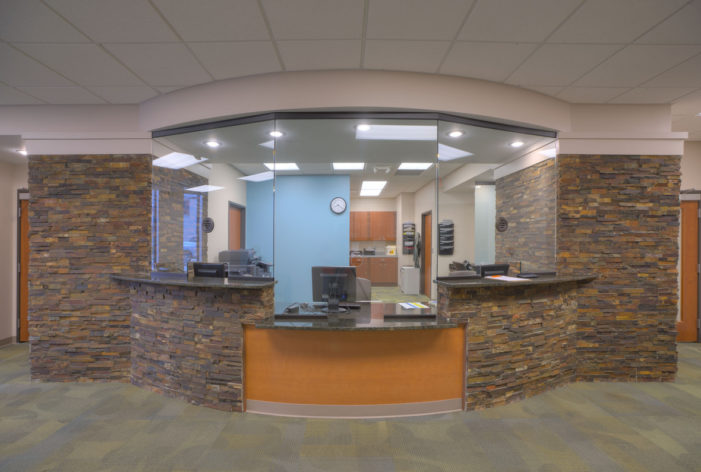Jenine Walker, 57, said while she had battled depression for decades, when she came to Central City Integrated Health (CCIH) for services 17 years ago, she was about as “down” as she could be. “I had lost my job and was left without insurance and was out of medicine.”
Walker was dubious about what CCIH could do for her. She said in addition to depression, she was dealing with anger issues, hypertension and is borderline diabetic. She expected to be shuffled along and not heard. She expected to have doctors changed on her all the time. She expected that her care would not be “integrated” to include all of her health issues.
I have the tools and I work them. I’m not 100 percent, but I’m much better than I have ever been.” -Jenine Walker
To her relief, her experience was far different than expected. She was in a group named “Women of Trauma” which she described as a pretty downtrodden bunch. “Everyone one of us was down. (With the help of the CCIH therapist) We were lifted up.” Walker says since that day she has never stopped going to CCIH for services.

Along with prescriptions, she also received therapy, and with it tools to help her cope. “Medicine is cool, it helps curb the anger, but it is still there,” added Walker. “I was taught if you want to change, you will. I have the tools and I work them. I’m not 100 percent, but I’m much better than I have ever been.”
The National Committee for Quality Assurance (NCQA), a nonprofit dedicated to improving health care quality, recently recognized CCIH as a “Patient-Centered Medical Home.” These NCQA recognized homes are considered the model-of care that emphasizes care coordination and communication to transform primary care into “what patients want it to be.”
As a patient, what Walker wanted her care to be was caring and complete. “One thing I like about CCIH is if I have an issue, someone will sit down with me. They listen. They care, and you want that.”
“The rehabilitation of buildings into supportive housing for the homeless increases the diversity of housing options in areas with growing development activity and rising rent costs.” -Ryan Lepper, President and CEO, Central City Integrated Health
Walker says that because of her many health issues, she needs to be cautious, and CCIH provides her with services she needs to take care of herself; from therapy and primary care to exercise equipment and the healthy cooking classes she attends to get in front of her borderline diabetes. “The services are there and they will help you.”

CCIH has been providing evidence-based medical and behavioral treatment and services in tandem with creating housing opportunities for Detroit’s most vulnerable residents for more than 40 years. Ryan Lepper, CCIH president and CEO, said NCQA’s recognition is validation of CCIH’s dedication to patient-based care. “This recognition is another step forward to our goal of full integration of care for our patients.”
While about 10 percent of Detroiters are considered uninsured, that doesn’t address those whose health issues are “underserved.”
“When you consider the populations in Detroit that are most vulnerable, such as those that are homeless or battling debilitating health issues, the numbers balloon,” said Lepper. “It is only with the integration of services that serve the whole person and their needs when real progress can be made. It is our mission to provide wraparound healthcare and housing to Detroit’s most vulnerable populations to reduce barriers in health equity.”

CCIH provides comprehensive primary medical, behavioral health and dental care to residents of Detroit and Wayne County. It also advances the City of Detroit’s goals to reduce homelessness by providing permanent stable housing and is especially passionate about the rehabilitation of Detroit buildings into supportive housing as was recently demonstrated by its groundbreaking of Saint Rita Apartments on Owen Street in Detroit. The long-vacant, historic building will be renovated into affordable housing in Fall 2018.
“The rehabilitation of buildings into supportive housing for the homeless increases the diversity of housing options in areas with growing development activity and rising rent costs,” said Lepper.
CCIH, which has been proactive in its outreach to provide affordable housing to homeless veterans, will host its inaugural Detroit Veterans Gala Nov. 10 at the Detroit Golf Club.
 “They work with you,’ said Walker of CCIH. “Nothing in this world is perfect, but I’ll tell you something: I will be there at CCIH until I’m gone or they tell me they are closed.”
“They work with you,’ said Walker of CCIH. “Nothing in this world is perfect, but I’ll tell you something: I will be there at CCIH until I’m gone or they tell me they are closed.”
Editor’s Note: to learn more about Central City Integrated Health call (313) 831.3160 or visit centralcityhealth.com


